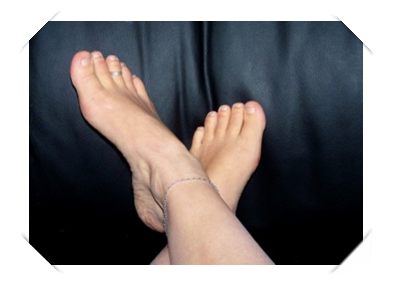Having recently been through this for the fourth time (awesome), I'm beginning to get a better and better idea of what I want and don't want from other people, of what is helpful and what is not. I know that this list wouldn't be the same for everyone, but hopefully it will give some guidance to someone who is stumbling through this unknown. So, a few of my do's and don't's for dealing with someone who has had a miscarriage:
- Do send a card, flowers, or food as you feel led. This shows that you acknowledge it as a real loss, not just an unfortunate incident.
- Do say, "I'm sorry you lost your baby. Is there anything I can do?" There generally isn't, but is shows you care and want to be supportive.
- Don't say it if you don't mean it. Can I really call you to help clean my house because I don't have the energy?
- Do feel free to show interest, but don't pry. If I want to share details with you, I will.
- Do remember that the pain doesn't stop after the first day. Grief is a long process. I'm not going to be over this tomorrow, or a week from now. One of the most helpful things for me has been my sister who, for the first little while, calls me everyday just to say, "How are you?" It shows me that she cares, she's thinking of me, and she wants to help. It gives me an opportunity to talk if I want to, but the freedom to move on to other subjects if I want that.
- Unless you are close to me, please don't ask me how I'm feeling. First of all, I don't know if you are asking about me physically or emotionally. Don't make me guess. Secondly - if it's how I'm feeling physically, your question makes it seem like I was simply ill or have a physical problem, not that I'm grieving my baby's death. If there are physical symptoms I'm going through, I'm not likely to share that intimate information with you if we are not close. If your question is how I'm feeling emotionally, would you actually ask that of anyone else going through grief? They are likely to shoot you an, "Are you stupid?" look. Pick a grief emotion and I've felt it - sad, angry, bitter, numb, betrayed, overwhelmed, guilty, alone, etc. Again, unless we are "share all our secrets" kind of close, I'm not likely going to want to share the intimate details of these emotions with you either.
- Don't tell me about Susie, or Jane, or your three cousins, or whoever it is that you know that also had a miscarriage, or six, or trouble getting pregnant, or whatever their story is. It's so not helpful on so many levels.
- Do tell me your story, if you've been there. It is helpful to simply hear, "I had a miscarriage (or six). I've been where you are." It feels a just a little bit less lonely, and a little bit more understood. Also, a simple statement like that leaves the door open for me to ask about your story, without having it forced on me if I'm not ready.
- Don't hint at understanding. "I know that it's hard." Do you mean you know loss is hard, or that you know personally that miscarriage is hard? Please just say it straight out. If you are trying to share, but I'm not sure, you haven't really shared anything.
- During my miscarriages, the only people who know are generally family. Afterwards, I don't care anymore who knows. It's my grief and it just might be public. For some people, the whole situation is a very private thing. Unless you are very sure that it's ok, don't share your friend's story with anyone else.
- Don't ask questions about what I did or didn't do before or during pregnancy. You may simply be trying to help find an explanation and hope for next time, but I'm already wondering if there was something I could have done to change the outcome. Even without a specific reason, a mother is likely to be feeling that she somehow failed her child. I always feel like I've let them, and my husband, down by not being able to hold on to them and support their life.
- Don't make comments such as, "At least... you have your son... you can try again... it was early..." Those things may be true, and yes, my son is a comfort to me, but these statements just belittle the loss. This was a baby, they were my baby, and I want them.
- Don't tell me that God had a reason for having this happen. I believe in God. I believe that no life begins or ends without his knowledge. I don't believe that God purposely ends my babies' lives. There is no reason good enough to justify the death of my children. Crap happens because we live in a crap world. I do believe that God can and does take that crap and bring something good out of it - nothing good enough to balance out the loss, but some small redemptive measure. Like, maybe after this, my fourth miscarriage, as I'm able to be more aware of what is helpful and what is not, and I'm prompted to write this post, someone will read this and be better able to support and bring a tiny measure of comfort to a friend going through their own miscarriage. Nowhere near worth being justification for losing my baby, but a tiny good thing that could come out of their very short life.
If you've been through pregnancy loss of any kind, feel free to add your own thoughts, tips, experiences.






